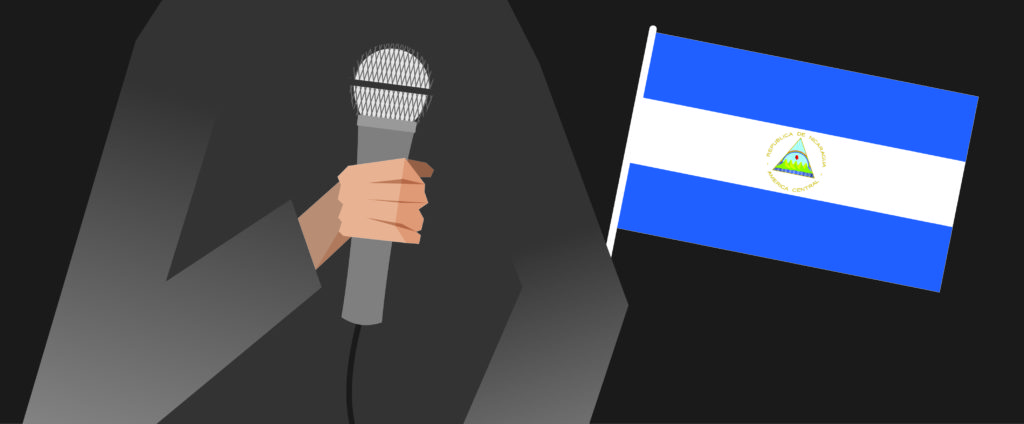It’s been a year since the political situation in Nicaragua hit a critical low with the Ortega regime. To commemorate this and to bring awareness of the situation in their country, five speakers put their anonymity and liberty at risk by coming to the University of Washington (UW) and letting interested people know what is currently happening in Nicaragua.
The UW Center for Human Rights and the student group Free Nicaraguan Political Prisoners decided to take action and host the event. People that had left Nicaragua and were seeking refuge in the United States shared their personal perspectives on what is happening in their country. Nicaragua is currently under the rule of an oppressive dictator who is seeking to rid the people of Nicaragua from their freedom by violently silencing them.
On April 18, 2018 the Ortega regime in Nicaragua started to violently oppress people who protested the dictatorship. Their main target were activists and students who led campaigns, but regular students, social workers and teachers were not and still are not safe. The Ortega family essentially runs the country as Mrs. Ortega is vice-president their son is their successor. This regime has lead to people seeking refuge in other countries and the ones who remain constantly fear for their safety and liberty.
The speakers asked to be kept anonymous and no recording of any kind was allowed to protect those who have or want to return to their home country. This event was held in order to create awareness, but also to encourage the UW and its community to put pressure on the Ortega regime to hopefully alleviate the suffering of the people.
Nicaraguan and other Central American supporters attended the event along with UW students and a Seattle U UCOR class in its full to show support to their Nicaraguan classmates who participated in the speaking.
“I think it’s really important [to host events like these] because it shows the reality of our country,” one of the speakers said, who is also a Seattle U student and wished to remain anonymous. “It’s really good to share our experiences with these types of events, and we hope to host some at our university but we haven’t received a lot of support and mainly held events in Spanish speaking classrooms. We really hope that we can be able to reach out to more of our English-speaking colleagues at SU.”
The event moved on and it got very personal and emotional. One of the speakers talked about how her brother was murdered and used as a symbol to plant fear in the people’s heart and it was clear how the audience and the rest of the speakers felt. The somber yet inspiring environment allowed for ideas to germinate about how to spread the word and get involved.
“Me and a couple of other students were taking a class on Latin American civil rights” Sarvin Mahmoodi, one of the 10 students involved in the event, said. “Our professor motivated us to start raising awareness of different things that have been happening, especially regarding the situation in Nicaragua.”
Mahmoodi’s team of UW students, with the support of the professor and the UW Center for Human Rights put up the event, without a lot of help from university authorities.
“Our professor gave us the initial ideas, but she let us choose whatever path we wanted to take to let our fellow students know about the issues that Nicaragua faces,” Mahmoodi said. “If there is a professor at Seattle U who is also Nicaraguan or is intimately involved with the situation it would be really helpful and an important step to actually make stuff happen.”
But it’s not only people at UW who are concerned about the situation in Central America.
“The thing that people don’t understand is that there is hardship in other countries,” one of the Nicaraguan Seattle U exchange students said. “Even though SU has supported us a lot we always feel that there could be more support to raise awareness. We don’t really want to go back to our country and even though we are aware that there are complicating policies between my Nicaraguan university and the university in Seattle, we feel Seattle University should be looking at this in terms of lives that are at stake.”
To create this kind of awareness at Seattle U, the students of the UCOR 1600 class taught by Serena Cosgrove, who is an expert in Central American affairs, will be having talks about the different difficulties faced by the isthmus countries at the Seattle U Undergraduate Research Association Conference.
Joshua may be reached at
jscoggin@su-spectator.com








